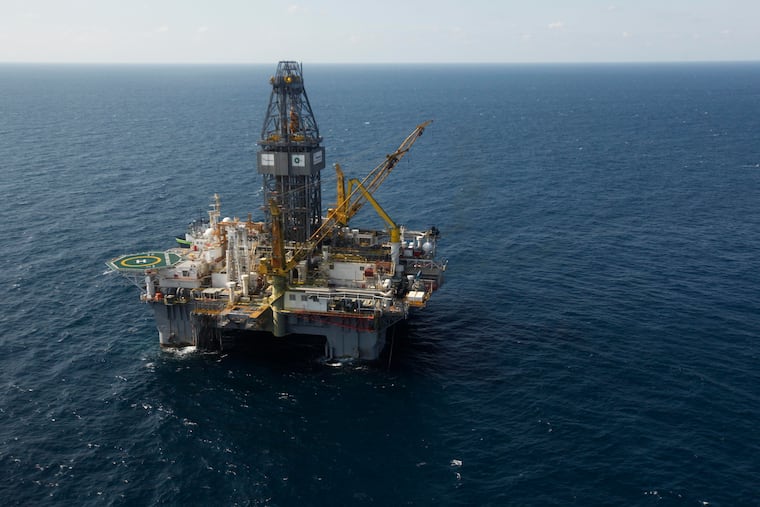Trump easing offshore drilling safety rules from Deepwater
The Trump administration moved Thursday to give oil and gas companies more flexibility to meet safety requirements imposed after the 2010 BP Deepwater Horizon explosion, which killed nearly a dozen people and was the nation's worst offshore oil disaster.

PORT FOURCHON, La. (AP) — The Trump administration moved Thursday to give oil and gas companies more flexibility in meeting safety requirements imposed after the 2010 BP Deepwater Horizon explosion, which killed nearly a dozen people and was the worst offshore oil disaster in U.S. history.
The revised rules, which govern safety standards at offshore wells, come as the administration pushes to expand drilling off the U.S. coast. They were sought by the industry but fiercely challenged by environmentalists.
Interior Secretary David Bernhardt said in a statement the administration was acting to eliminate "unnecessary regulatory burdens while maintaining safety and environmental protection offshore."
Officials picked Louisiana's Port Fourchon, a hub for drilling in the Gulf of Mexico, to announce the changes to an audience that included port workers in hard hats and reflective safety vests. Workers applauded speakers' calls for easing regulations.
"We're more open to invention," Scott Angelle, a safety regulator at the Interior Department, told the crowd. "We tell them what to do," he said. "How they do it is up to them."
Officials estimate the Trump administration revisions will save the oil industry more than $1.5 billion over the next 10 years.
Eleven people died in April 2010 when the Deepwater Horizon exploded, ultimately releasing more than 3 million barrels of crude into the Gulf of Mexico. Crews finally capped the well in July 2010, three months after it began gushing oil from the bottom of the sea in a spectacle captured live on video.
The explosion prompted a major overhaul of the agency that oversees offshore drilling, as investigators concluded regulators were too cozy with industry. The explosion and resulting oil spill also focused attention on blowout preventers, devices intended to monitor and control oil and gas wells to prevent uncontrolled release of crude oil or natural gas from a well.
In the aftermath, the Obama administration imposed more precise operating requirements for offshore crews in tracking pressure in underwater wells, more real-time monitoring by oil companies and more rigorous inspections of blowout preventers on the offshore facilities, among other measures.
Vuong Vo, 31, who traveled to Port Fourchon from New Orleans for a kayaking tournament, said his father, a shrimper, was left with permanent skin and nasal problems after a few months working on the cleanup after Deepwater Horizon.
"It takes one accident to affect so many people," he said.
The Trump administration and oil industry say the revised rule preserves 80 percent of the Obama-era regulation.
Erik Milito, a vice president of the American Petroleum Institute, said the slate of safety measures adopted under the Obama administration was “simply too prescriptive, curtails innovation, and can make it hard for the company to move forward.”
"We haven't identified anything in the rule that's taking a step backward on safety," Milito said, referring to the Trump administration revisions, which take effect 60 days after they are published in the Federal Register.
Donald Boesch, a marine scientist on the presidential commission that investigated the Deepwater Horizon disaster, said even with the new changes, "we're still better off probably than we were before the blowout" in terms of offshore drilling safety.
"But I'm not convinced we're safer than we were two years ago," Boesch said.
As far as giving the industry more discretion in how it complies with the post-Deepwater Horizon safety rules, "That's what we thought before the BP blowout," Boesch said. "We let the industry decide and what happened was people took chances. That's the reason why we need hard and fast standards."
Associated Press writers Matthew Daly and Matthew Brown contributed to this article.